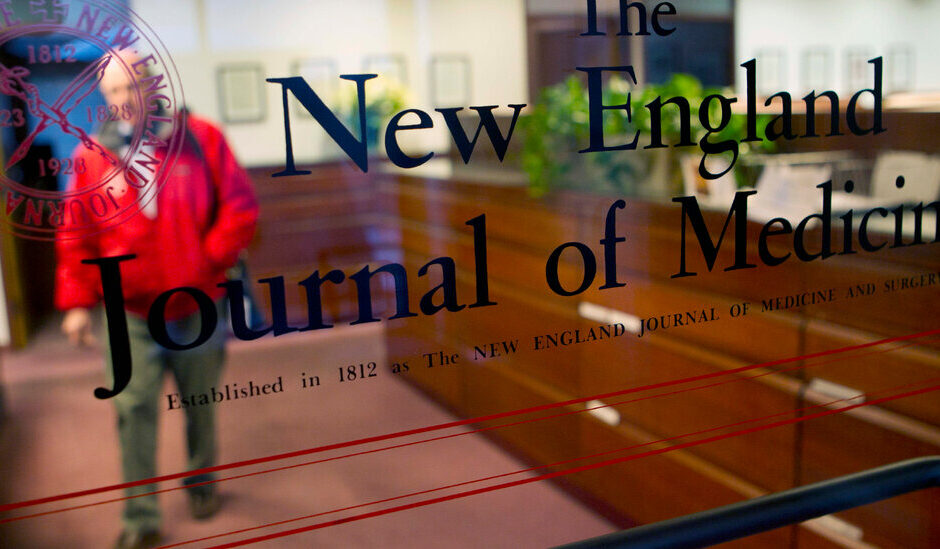A federal prosecutor in Washington has contacted The New England Journal of Medicine, considered the world’s most prestigious medical journal, with questions that suggested without evidence that it was biased against certain views and influenced by external pressures.
Dr. Eric Rubin, the editor in chief of N.E.J.M., described the letter as “vaguely threatening” in an interview with The New York Times.
At least three other journals have received similar letters from Edward Martin Jr., a Republican activist serving as interim U.S. attorney in Washington. Mr. Martin has been criticized for using his office to target opponents of the administration.
His letters accused the publications of being “partisans in various scientific debates” and asked a series of accusatory questions about bias and the selection of research articles.
Do they accept submissions from scientists with “competing viewpoints”? What do they do if the authors whose work they published “may have misled their readers”? Are they transparent about influence from “supporters, funders, advertisers and others”?
News of the letter to N.E.J.M. was reported earlier by STAT, a health news outlet.
Mr. Martin also asked about the role of the National Institutes of Health, which funds some of the research the journals publish, and the agency’s role “in the development of submitted articles.”
Amanda Shanor, a First Amendment expert at the University of Pennsylvania, said the information published in reputable medical journals like N.E.J.M. is broadly protected by the Constitution.
In most cases, journals have the same robust rights that apply to newspapers — the strongest the Constitution provides, she added.
“There is no basis to say that anything other than the most stringent First Amendment protections apply to medical journals,” she said. “It appears aimed at creating a type of fear and chill that will have effects on people’s expression — that’s a constitutional concern.”
It’s unclear how many journals have received these letters or the criteria that Mr. Martin used to decide which publications to target. The U.S. attorney’s office in Washington did not respond to a request for comment.
“Our job is to evaluate science and evaluate it in an unbiased fashion,” Dr. Rubin said. “That’s what we do and I think we do it well. The questions seem to suggest that there’s some bias in what we do — that’s where the vaguely threatening part comes in.”
Jeremy Berg, the former editor in chief of the journal Science, said he thought the letters were designed to “intimidate journals to bend over backward” to publish papers that align with the administration’s beliefs — on climate change and vaccines, for example — even if the quality of the research is poor.
Robert F. Kennedy Jr., the nation’s health secretary, singled out N.E.J.M in an interview with the “Dr. Hyman Show” podcast last year as an example of a medical journal that has participated in “lying to the public” and “retracting the real science.”
Andrew Nixon, a spokesman for the Health and Human Services Department, declined to comment on whether Mr. Kennedy had any involvement with the letters.
In the interview, Mr. Kennedy said he would seek to prosecute medical journals under federal anti-corruption laws.
“I’m going to litigate against you under the racketeering laws, under the general tort laws,” he said. “I’m going to find a way to sue you unless you come up with a plan right now to show how you’re going to start publishing real science.”
Dr. Jay Bhattacharya, the new director of N.I.H., has vigorously criticized the leadership of scientific journals. Recently he co-founded a new journal as an alternative to traditional scientific publishing. It has published contrarian views on Covid.
Other prominent journals said they had not received the letter. On Friday, The Lancet, which is based in Britain, published a scathing editorial in solidarity, calling the letters “an obvious ruse to strike fear into journals and impinge on their right to independent editorial oversight.”
“Science and medicine in the U.S.A. are being violently dismembered while the world watches,” the editorial said.
One of Mr. Martin’s letters was sent to the journal Chest, a low-profile publication that publishes highly technical studies on topics like lung cancer and pneumonia. The New York Times reported last week that at least two other publishers had received nearly identically worded letters.
They declined to speak publicly for fear of retribution from the Trump administration.
Dr. Rubin said he, too, was worried about political backlash. Scientific journals rely on public funds in several indirect ways — for example, universities often use federal grants to pay for subscriptions.
“Are we concerned? Of course we are,” he said. “But we want to do the right thing.”
Mr. Martin gave the journals until May 2 to respond to his questions. N.E.J.M. has already responded to Mr. Martin with a statement that pushes back against his characterization of the journal.
“We use rigorous peer review and editorial processes to ensure the objectivity and reliability of the research we publish,” the statement read. “We support the editorial independence of medical journals and their First Amendment rights to free expression.”
This is not the N.E.J.M’s first brush with a Trump administration.
In 2020, the journal published an editorial condemning the president’s response to the pandemic — the first time the journal had supported or condemned a political candidate in its 208-year history.
Dr. Rubin said he doubted Mr. Martin’s letter was related to the editorial. The journal Chest didn’t write about Trump’s first term yet received a letter, he noted.
#Vaguely #Threatening #Federal #Prosecutor #Queries #Leading #Medical #Journal


